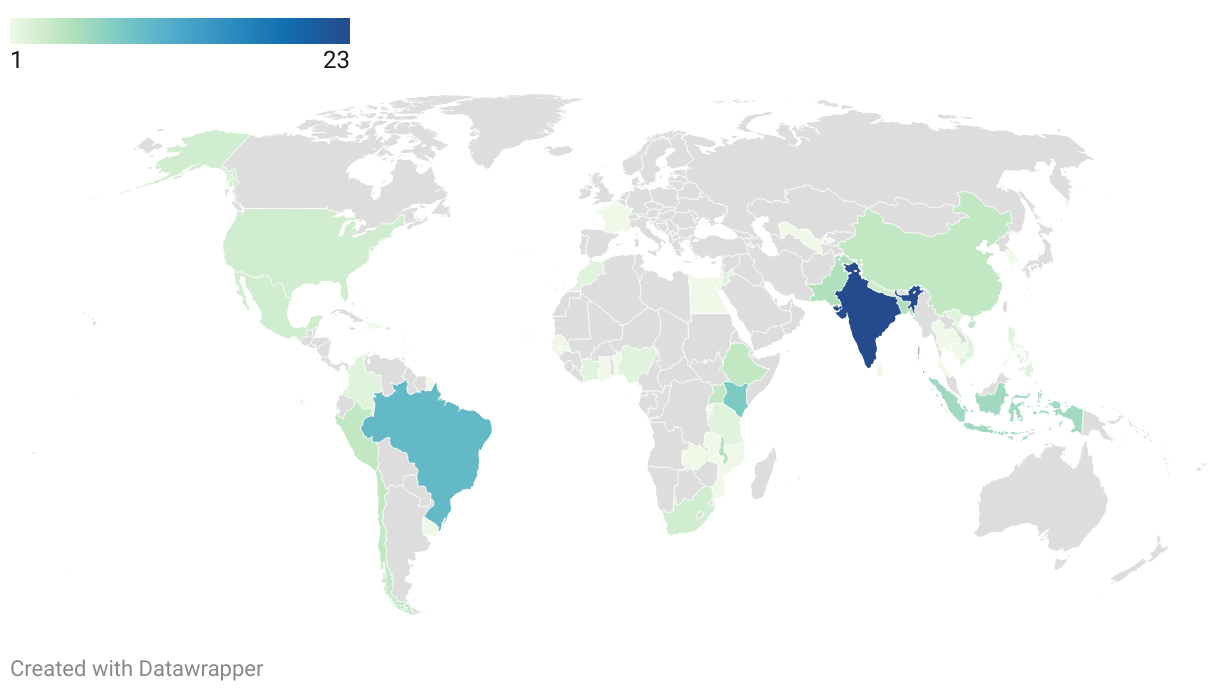Given the harsh tone and general gridlock in the U.S. Congress of late, one might think that signs of bipartisanship and ‘getting things done’ would be welcome, but not always. We caught a glimpse this week of the good, bad and ugly in congressional activities surrounding the African Growth and Opportunity Act (AGOA), which grants duty-free treatment to most imports from sub-Saharan Africa , and the U.S. farm bill.Let’s start with the (relatively) good news—it looks like Congressional leaders have cut a deal to allow extension of an AGOA provision that ensures eligible countries are able to continue exporting clothing to the United States duty-free. Inside U.S. Trade (subscription required) reported earlier this week that extension of the third-country fabric rule, which allows AGOA exporters to use imported fabric and other inputs in the clothing they export here, could move forward in the Senate as early as this week and be passed by both houses before the upcoming fourth of July recess. This is good, but not as good as if the measure had passed last year. The expiration of the rule is just three months from now and clothing orders are typically placed nine months in advance, meaning that sales have likely already been disrupted.The bad news is that the Senate passed a new farm bill Thursday that will make US subsidies for agriculture relatively more trade- and production-distorting than the ones they replace, as I feared in earlier posts here and here. Some of my worst fears were avoided when the budget super committee failed last year and the bill had to go through a more open deliberative process in the Senate. For example, amendments to cap certain subsidies, and to limit others to farmers making more than $750,000 were approved when senators had to go on the record as being for or against (results can be found on the Library of Congress’ Thomas website). But an amendment to undo additional protections for U.S. sugar producers from developing country exports that were added in the 2008 farm bill was defeated 53-46. And, as expected, billions of dollars saved by cutting direct payments are being put into a new program that comes on top of ballooning crop insurance subsidies and protects farmers against even “shallow losses.” So don’t be fooled by the claims that this is a reform bill.The ugly part is how the bipartisanship on these issues actually underscores the lack of attention to the poorer countries of the world. The AGOA rule extension was not controversial and the Senate provision was supported by both the chairs and ranking members of both committees of jursidiction (Senate Finance and House Ways and Means). But, as explained here, passage was stalled for months because lack of trust between the parties prevented agreement on a process to move the provision forward. And the farm bill, even with a more open process that included three Senate hearings and three days of floor debates on amendments, almost entirely ignored the potential impact on poor farmers in developing countries, or other trading partners.Call me a cynic, but I’d like to see bipartisanship include a little more attention to the public interest—both local and global.
CGD blog posts reflect the views of the authors, drawing on prior research and experience in their areas of expertise.
CGD is a nonpartisan, independent organization and does not take institutional positions.





